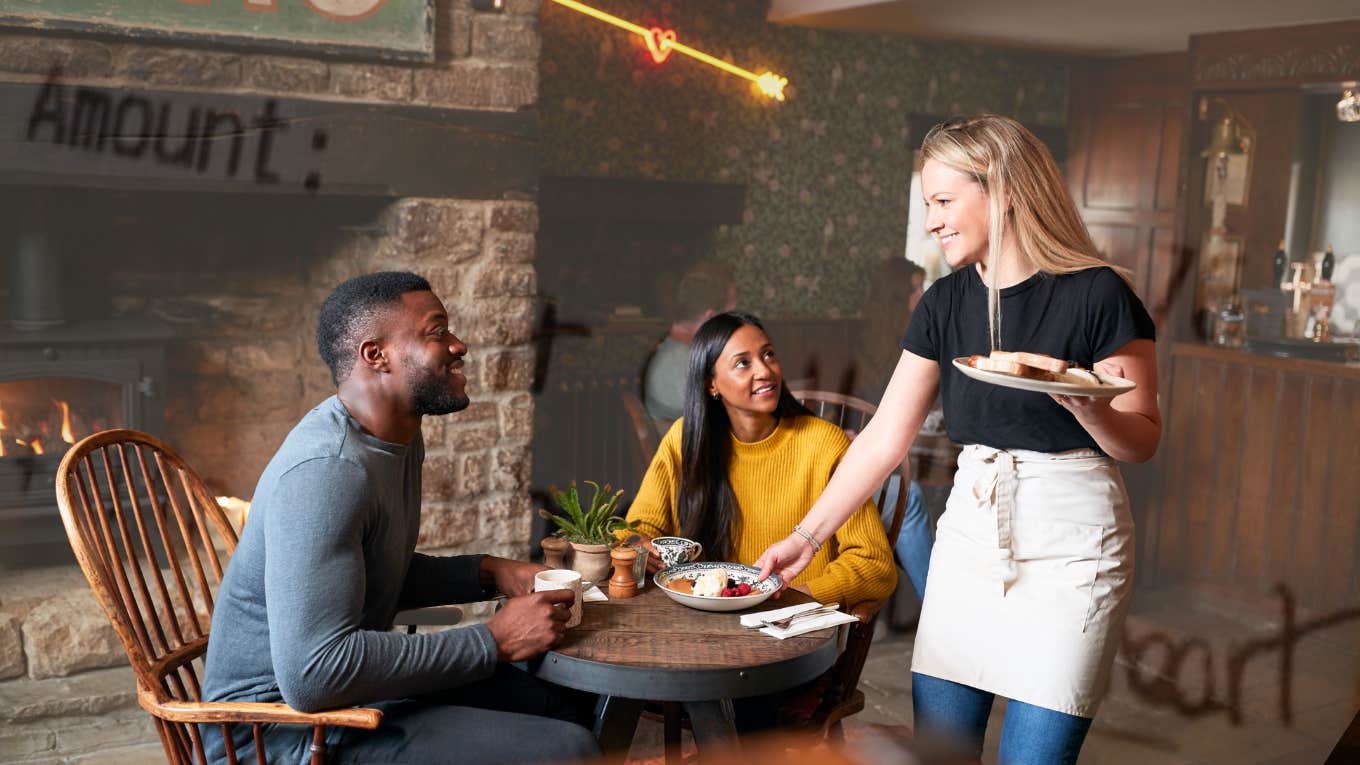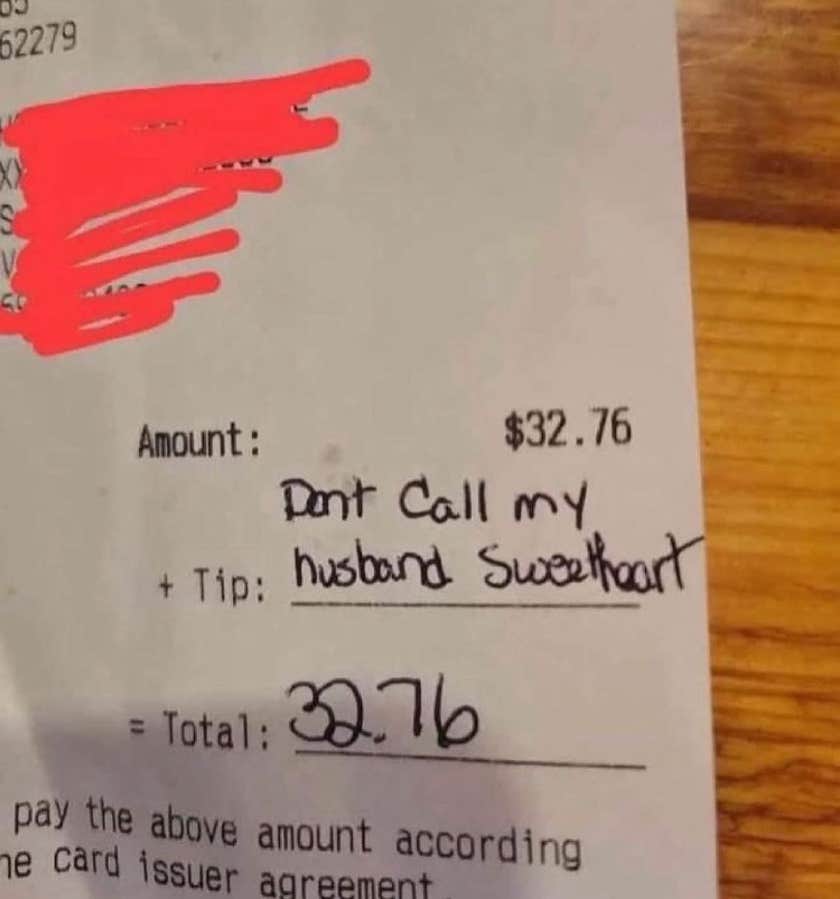Note Left On Server's Receipt Instead Of Tip Sparks Debate On How You Should Treat Customers
If she's calling your husband 'sweetheart,' she's probably just trying to be nice!
 Monkey Business Images | Canva, @epicfunnypage | Instagram
Monkey Business Images | Canva, @epicfunnypage | Instagram After a server posted a receipt left by restaurant patrons, a debate erupted among Instagram commenters who were looking for more context in regards to what was left in the “Tip” section of the bill.
Ultimately, discussions ensued surrounding tipping, but more importantly about the relationship between patron and server.
The restaurant patrons didn’t leave a tip because the server called a woman’s husband ‘sweetheart.’
Reposted online by an account called “@epicfunnypage,” they asked for people’s thoughts on the note left by patrons on the receipt. The total for the bill was $32.76, but the “Tip” that was offered was instead a tip about her service.
Patrons wrote “Don’t call my husband sweetheart,” instead of any monetary value, implying that because waitstaff referred to the woman’s husband by the pet name, a tip wasn't warranted.
 Photo: @epicfunnypage/Instagram
Photo: @epicfunnypage/Instagram
Incensed by the situation, many people took to the comments on all sides of the debate.
“I’m a server. I can tell you straight up, we don’t want [your] man, we want [your] money,” one of the top comments wrote, implying that part of providing a service that results in a better tip comes from creating a connection with customers. Referring to people as “sweetheart" or “hun,” is a normal greeting in diners and casual restaurants across the country. It's also commonly done in southern states to show friendliness and hospitality.
Why some might take offense to that likely part of differences in local culture, but some people in the comments questioned what the server's true intentions were. “I agree, don't get [too] comfortable with another woman's Husband, no need to use words of endearment to get tips, simply do your job and provide good service,” one comment read.
However, many people attributed the wife’s reaction to her husband being called “sweetheart” as insecurity. “Tell me you're insecure in your relationship without telling me,” someone wrote in response to the snub.
In the United States, servers rely on tips in order to live.
According to the National Employment Law Project, approximately 58.5 percent of a waitstaff’s hourly earnings comes from tips. Of course, the US Department of Labor says that if a server’s earnings don’t match up to at least the minimum wage, the employer must make the sum up — but tips still account for the largest portion of income made.
Servers work hard and have to deal with a lot when it comes to working in a restaurant, so the general consensus is that you should tip them regardless of your personal feelings. As Bon Appetit notes, because of the system we have in place, refusing to tip at all, even if you perceive the service as "bad," means you aren't actually paying the full price of your meal. That means 15-20 percent should be standard, and exceptional service should, and can, be anything above that.
Chances are, your waitress did not clock into her shift with the intent to steal your husband; she did it to work. In an interview with US News & World Report, etiquette expert Lisa Mirza Grotts, put it simply, “Any time a service is performed, a gratuity is required.”
Isaac Serna-Diez is an Assistant Editor for YourTango who focuses on entertainment and news, social justice, and politics.

